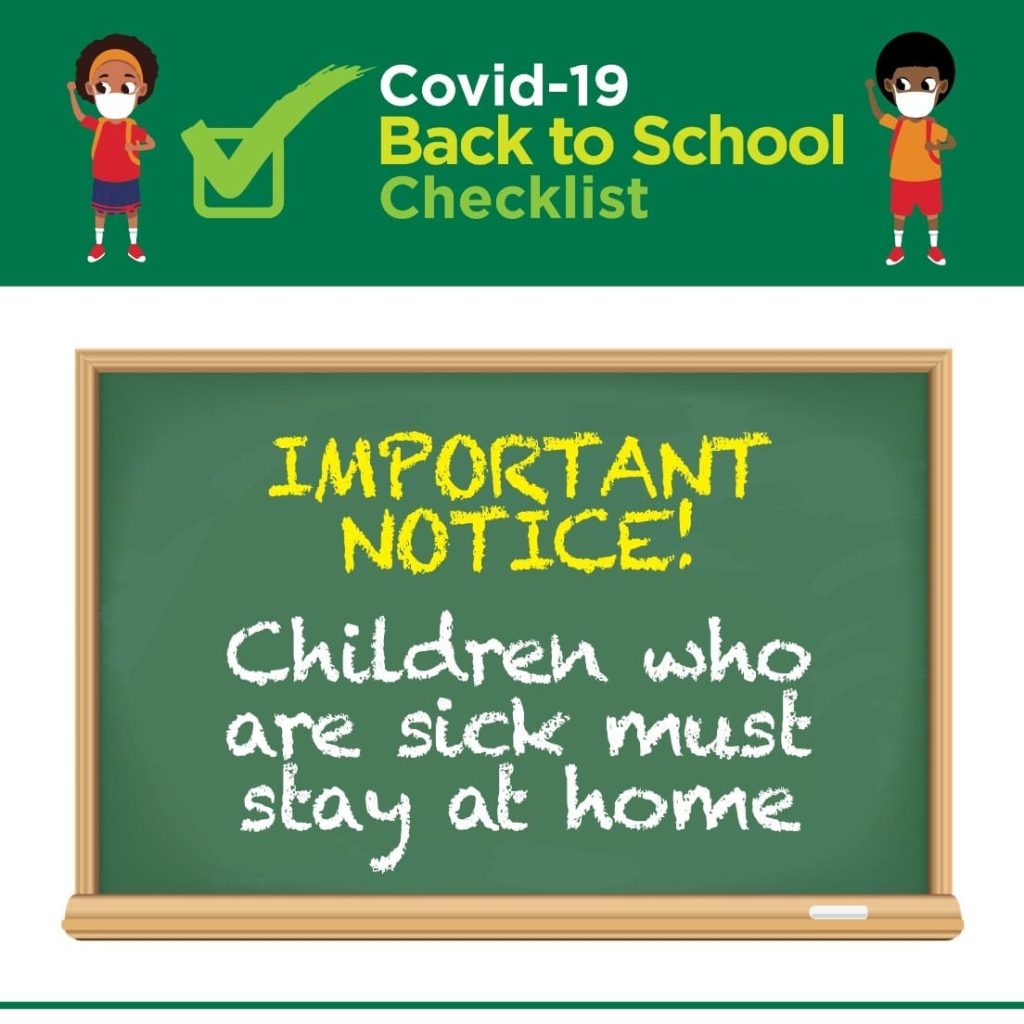As the COVID-19 pandemic continues, we need to maintain prevention strategies so that we don’t have a COVID-19 outbreak. At the moment, there is no requirement to submit a COVID test before resuming school on Monday 5th September. Children who will display symptoms in school, will be isolated from class until they are picked up from home.
COVID-19 vaccination
A COVID-19 vaccine and booster doses might prevent you from getting the COVID-19 virus or becoming seriously ill or hospitalised.
Wearing face masks
Whether or not household members are vaccinated, we recommend wearing a face mask when visiting the school. Students and staff who have been exposed or think they’ve been exposed to COVID-19 will need to undertake a COVID-19 PCR test and wear a mask around others for 10 days after their last exposure.
If your child wears a face mask in school, consider these tips:
Have your child wear the most protective mask possible that fits well and is comfortable.
Provide your child with a clean mask and a backup mask each day. Consider giving your child a clean, resealable bag to store the mask during lunch.
Label your child’s mask, so it’s not confused with other children’s masks. Tell your child never to wear another child’s used mask.
Screening test
If there is a new COVID-19 wave in Lagos and Nigeria, we might need to screen all students and staff.
We may also have to screen students and staff before and after breaks, such as a holiday or half-term break.
Handwashing
We will continue to encourage students to frequently wash their hands with soap and water for at least 20 seconds or use an alcohol-based hand sanitiser that contains at least 60% alcohol. Children should cover their mouths and noses with an elbow or a tissue when coughing or sneezing. Children also should avoid touching their eyes, noses and mouths. To ensure thorough handwashing, kids can be taught to keep washing their hands until they have sung the entire “Happy Birthday” song twice (about 20 seconds).
Staying home when sick and getting tested
Students who have symptoms of an infectious illness should stay home from school and get tested for COVID-19. Possible symptoms of COVID-19 in children include:
Fever
Cough that becomes productive
Chest pain
New loss of taste or smell
Changes in the skin, such as discoloured areas on the feet and hands
Sore throat
Nausea, vomiting, belly pain or diarrhoea
Chills
Muscle aches and pain
Extreme fatigue
New severe headache
New nasal congestion
Everyone with COVID-19 should stay home and isolate from others for at least 5 full days. Children who have had COVID-19 will be required to submit a negative COVID-19 PCR test before returning to school.
Contact tracing
Contact tracing is the process of identifying people who may have been exposed to someone with COVID-19. During an outbreak, contact tracing to help students and staff know when to stay home can help prevent the spread of COVID-19. Strategies such as improving ventilation or wearing a well-fitting mask also can help prevent further spread.
If your child’s school does contact tracing, make sure you understand what steps your child needs to take after a COVID-19 exposure.
Cleaning and disinfecting
Cleaning once a day is usually enough to lower the risk of germs spreading from surfaces in schools.
What to do if your child gets COVID-19
Even if your family and your child’s school carefully follow these prevention strategies, it’s still possible for your child to get COVID-19. If your child tests positive for COVID-19:
Talk to your child’s health care provider. Keep your child home from school and away from others, except to get medical care.
Focus on relieving your child’s symptoms. This might include rest, plenty of fluids and the use of pain relievers.
Contact the school. Make sure you understand the school’s policy on when your child can return to school.
Consider picking one person in your family to care for your sick child. Have that caregiver be with your child and separated from others in your home when possible.
Unfortunately, pets can catch COVID-19, so limit contact between your child and your pets.
Call the health care provider if your child gets sicker. Emergency warning signs include trouble breathing, persistent pain or pressure in the chest, new confusion, and inability to wake or stay awake.
We wish everyone a healthy start of the new academic year and look forward to seeing you all on Monday.

